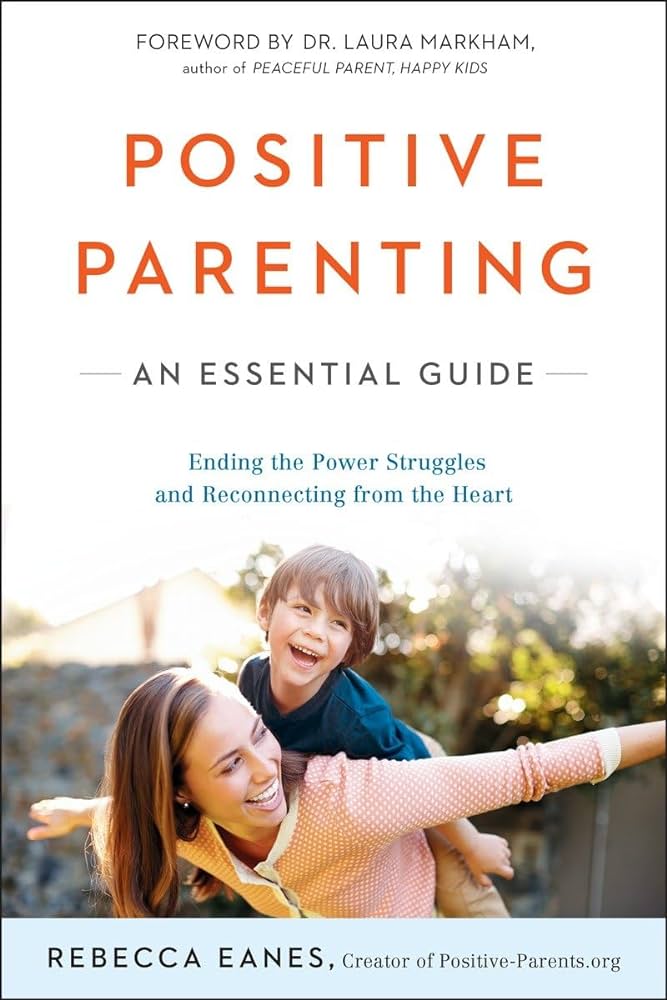
Positive Parenting: An Essential Guide by Rebecca Eanes
Introduction
Positive Parenting is a philosophy that emphasizes the importance of nurturing, guiding, and supporting children in a compassionate and respectful manner. In her book, Rebecca Eanes provides a comprehensive guide to adopting this approach and offers practical advice for parents.
Core Principles of Positive Parenting
Rebecca Eanes outlines several core principles that form the foundation of Positive Parenting:
- Empathy - Understanding and sharing the feelings of your child.
- Respect - Treating your child with dignity and respect.
- Consistency - Being consistent in your expectations and discipline.
- Connection - Building a strong emotional bond with your child.
Benefits of Positive Parenting
According to Rebecca Eanes, the benefits of Positive Parenting are numerous:
| Benefit | Description |
|---|---|
| Improved Behavior | Children are more likely to exhibit positive behaviors and less likely to engage in negative behaviors. |
| Enhanced Emotional Health | Children develop better emotional regulation and coping skills. |
| Stronger Parent-Child Relationship | The bond between parent and child is strengthened, leading to a more harmonious household. |
Implementing Positive Parenting
Implementing Positive Parenting involves several key strategies:
1. Active Listening
Active listening involves giving your full attention to your child when they are speaking and showing that you understand their feelings and perspectives. This helps build trust and open communication.
2. Setting Clear Boundaries
It is important to set clear and consistent boundaries for your child. This provides them with a sense of security and helps them understand what is expected of them.
3. Positive Reinforcement
Using positive reinforcement, such as praise and rewards, encourages children to repeat desirable behaviors. This approach is more effective than punishment in promoting long-term behavior change.
4. Modeling Behavior
Children learn by observing their parents. By modeling respectful, empathetic, and positive behavior, parents can teach their children how to interact with others in a healthy and constructive manner.
Challenges and Solutions
While Positive Parenting offers many benefits, it is not without its challenges. Rebecca Eanes provides solutions to common obstacles:
1. Consistency
Maintaining consistency can be difficult, especially when parents are stressed or tired. Eanes suggests creating routines and setting aside time for self-care to help parents stay consistent.
2. Patience
Positive Parenting requires a great deal of patience. Eanes recommends practicing mindfulness and stress-relief techniques to help parents remain calm and patient.
3. Dealing with Resistance
Children may resist changes in parenting style. Eanes advises parents to communicate openly with their children about the changes and involve them in the process.
Success Stories
Rebecca Eanes shares several success stories from parents who have adopted Positive Parenting:
- One parent reported that their child became more cooperative and less prone to tantrums after implementing positive reinforcement techniques.
- Another parent noted a significant improvement in their child's emotional health and self-esteem after focusing on building a strong parent-child connection.
- A third parent described how setting clear boundaries and being consistent helped their child feel more secure and behave better.
Conclusion
Positive Parenting is a compassionate and effective approach to raising children. By following the principles and strategies outlined by Rebecca Eanes, parents can create a nurturing and supportive environment for their children to thrive.
For more information on Positive Parenting and other parenting resources, visit Read Review Talk and check out our blog.



